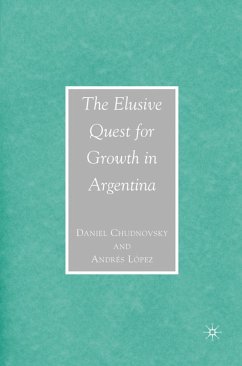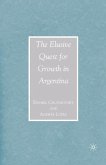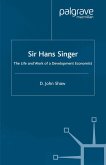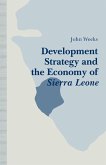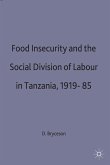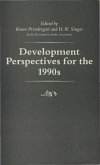Despite its unusually rich availability of natural resources and ample base of human capital, in the last forty years Argentina suffered a poor growth performance in any cross-country comparison. Chudnovsky and Lopez's analysis includes two episodes of growth in 1964-74 and in 1991-98 that proved to be finally unsustainable, as well as the 2001 crisis, the most severe in the country's history. Since both growth episodes took place under quite different development paradigms, the Post-War Development Consensus and Washington Consensus, lessons about what went right and wrong in Argentina contributes to the debate about the virtues and failures of those paradigms. Following mainly an institutional and historical approach, but also employing rigorous economic analysis, this book offers a timely contribution to one of the big puzzles in the field of development economics.
This book explores a big puzzle in development economics - why Argentina, despite rich natural resources and ample human capital, has endured such poor growth performance. The authors use rigorous economic analysis and an institutional and historical approach to show what went wrong, in a timely contribution to the sustainable development debate.
This book explores a big puzzle in development economics - why Argentina, despite rich natural resources and ample human capital, has endured such poor growth performance. The authors use rigorous economic analysis and an institutional and historical approach to show what went wrong, in a timely contribution to the sustainable development debate.
"This brilliant book by Chudnovsky and Lópezbrings together their decades-long and careful study of the Argentine economy in the Post-War period. This is one of the finest books available on Argentina, co-authored by two of the best economists of that country."
- Jorge Niosi, Professor of Management Science, Université du Québec à Montrèal
"This is more than an excellent introduction to disappointing Argentine economic development over the last half century. The volume also confronts alternative explanations for lack of growth, thereby developing a more comprehensive view where industrial structure, technology, and institutions all enter. It merits attention."
- Albert Fishlow, Professor of International Affairs and Director, Center for Brazilian Studies, Columbia University
"Through detailed, rigorous, and scholarly analysis, the authors make insightful contributions to the literature on Argentina's economy and the broader understanding ofthe development process."
- Kevin P. Gallagher, Assistant Professor of International Relations, Boston University
"Most analyses of the Argentine economy focus on the role of macroeconomics and political instability in determining the poor performance of the country. Without ignoring the role of these factors, Chudnovsky and López present an insightful analysis on the role ofproduction sectorrestructuring and the associatedmicroeconomicfactors in the dynamics of the twomajor growth spurts that Argentinaexperienced over the past four decades, and why they proved unsustainable.Readers will find the analysis quite stimulating."
- José Antonio Ocampo, United Nations Under-Secretary-General for Economic and Social Affairs "This sweeping, highly readable explores the factors that have made Argentina incapable of sustaining its economic growth, compared to Brazil and Mexico and countries in East Asia... Recommended." - CHOICE
- Jorge Niosi, Professor of Management Science, Université du Québec à Montrèal
"This is more than an excellent introduction to disappointing Argentine economic development over the last half century. The volume also confronts alternative explanations for lack of growth, thereby developing a more comprehensive view where industrial structure, technology, and institutions all enter. It merits attention."
- Albert Fishlow, Professor of International Affairs and Director, Center for Brazilian Studies, Columbia University
"Through detailed, rigorous, and scholarly analysis, the authors make insightful contributions to the literature on Argentina's economy and the broader understanding ofthe development process."
- Kevin P. Gallagher, Assistant Professor of International Relations, Boston University
"Most analyses of the Argentine economy focus on the role of macroeconomics and political instability in determining the poor performance of the country. Without ignoring the role of these factors, Chudnovsky and López present an insightful analysis on the role ofproduction sectorrestructuring and the associatedmicroeconomicfactors in the dynamics of the twomajor growth spurts that Argentinaexperienced over the past four decades, and why they proved unsustainable.Readers will find the analysis quite stimulating."
- José Antonio Ocampo, United Nations Under-Secretary-General for Economic and Social Affairs "This sweeping, highly readable explores the factors that have made Argentina incapable of sustaining its economic growth, compared to Brazil and Mexico and countries in East Asia... Recommended." - CHOICE

